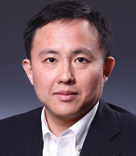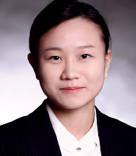Arguably the most significant change in China’s intellectual property (IP) system in 2014-2015 is the launch of the specialised IP courts. Although the idea came from the mid-1990s, the speed with which China set up the new courts after making the decision demonstrates a strong attitude for reforming the current IP enforcement system.

Senior Consultant
AnJie Law Firm
Beijing
According to the official statement, the establishment of specialised IP courts in Beijing, Shanghai and Guangzhou is intended to better deal with “technology centric” matters such as patent and trade secret cases.
There is no doubt the new courts will have significant impact on adjudication of trademark and copyright cases as well. The business community naturally has a deep interest in how these new courts may affect their overall IP strategies in China. This column discusses how the above-mentioned specialised courts may affect the handling of IP cases and IP protection.
Q: What is the jurisdiction of the specialised courts?
A: Pursuant to the Supreme People’s Court (SPC) Judicial Interpretation on Jurisdiction of Beijing, Shanghai, Guangzhou Intellectual Property Courts, the specialised courts will act as the courts of first instance to handle: (a) civil and administrative cases involving patents, new plant species, layout designs of integrated circuits, technological secrets and computer software; (b) administrative cases brought against administrative acts concerning copyright and trademarks; and (c) civil cases concerning determination of well-known trademarks.
Notably anti-competition cases, such as those related to trade dress, are not subject to the jurisdiction of the new courts. Also, it is widely believed that private antitrust lawsuits filed in Beijing, Shanghai and Guangzhou are also going to be handled by the new specialised courts.
In addition, the Beijing IP Court will also handle cases brought against IP granting and determination decisions, compulsory licensing decisions and decisions on compulsory licensing fees or remuneration concerning patents, new plant species and layout designs of integrated circuits. Criminal IP cases are not handled by the specialised courts.
Q: How does the establishment of specialised courts affect the trials of patent cases/trademark cases/copyright cases in China?
A: It is generally believed that the new courts will be good news in delivering better and more consistent judgments in favour of IP rights owners. One notable feature of the courts is the high criteria for judge selection.
Almost all the judges and their court clerks have rich experience in handling IP cases. The depth of knowledge gives the industry a lot of hope that complex IP subjects will be taken care of in a more uniform and consistent manner, with more experiments of best international practice.
The specialised courts are expected to be harsher on IP infringers and more willing to award considerable damages, which is good news to IP rights owners. This might be particularly true for patent and trade secret cases, and the specialised courts may have some incentives to deliver positive outcomes in high-profile cases.

Associate
AnJie Law Firm
Beijing
For instance, courts may be less reluctant to issue preliminary injunctions, support substantially increased damages or grant evidence preservation measures. At the same time, there are concerns that more frivolous lawsuits involving low-quality utility model and design patents may come knocking at the specialised courts’ doors.
As for trademark cases, one major concern is the courts’ capability and staff support in handling trademark prosecution cases judging by the mass of trademark granting and determination and other disputes.
The administrative trademark cases seem to be a heavier burden than expected, which may eventually demand more judge manpower.
The establishment of specialised courts does not seem to dramatically change the landscape of copyright case adjudication. First instance copyright cases remain under the jurisdiction of lower courts.
The specialised courts only accept appeals on such copyright cases decided by lower courts, which may suggest some consistency in rendering final decisions. However, software-related copyright cases may gain some extra attention as they are clearly subject to the jurisdiction of the specialised IP courts.
Q: What is the technology investigator mechanism, and what is its value?
A: One of the notable reforms for the new specialised IP courts is the new position of technology investigator. The technology investigators, who are intended to provide in-house technical capability for the judges, have been introduced to improve the technical capability, professionalism and neutrality of technical fact finding, and to ensure the justice and efficiency of cases involving technology issues.
A technology investigator does not have judicial power and is merely appointed by a judge to analyse technology issues in a case. The investigators have no vote in case decisions. The technology opinions of investigators are considered by judges as references for fact finding. This mechanism is apparently borrowed from Japan, South Korea and Taiwan.
According to the rules of technology investigators in litigation in IP courts stipulated by the SPC, technology investigators are responsible for the following: (1) review legal documents and evidence to identify disputed points of technological fact; (2) advise on investigation range, orders and methods; (3) participate in evidence collection, authentication and preservation, and advise on methods and steps of such activities; (4) participate in court investigations, hearings and trials; (5) provide technology investigation opinions, and participate in court collective discussions of the cases; and (6) if necessary, assist the judges to organise appraisers and technical experts to provide appraisal opinions or consulting opinions.
Overall, the business community has very high hopes for the new IP courts in China. How the new courts in Beijing, Shanghai and Guangzhou interact and co-ordinate to formulate consistent case precedents may also be closely watched. What is interesting is that some scholars in China have already started discussing the possibility of having an IP court set up at the appellate level. The new IP courts have a term of three years, according to the policy guidance issued by the SPC. Their operation will lay a solid foundation for any future reforms.
He Jing is a senior consultant and Pei Lyu is an associate at AnJie Law Firm
26/F, Tower D, Central International Trade Center
6A Jianguomenwai Avenue
Chaoyang District, Beijing, China
Postal code: 100022
Tel: +86 10 8567 5988
Fax: +86 10 8567 5999
www.anjielaw.com
E-mail:
hejing@anjielaw.com
lvpei@anjielaw.com






















